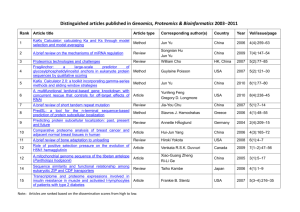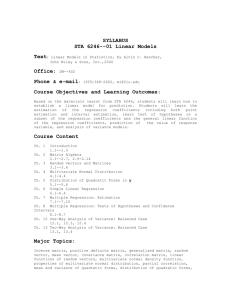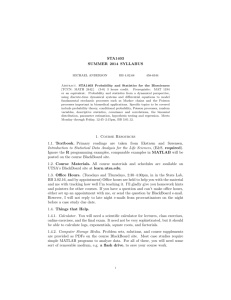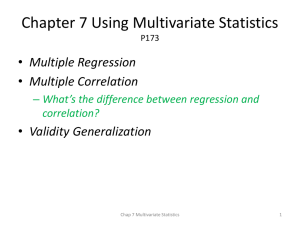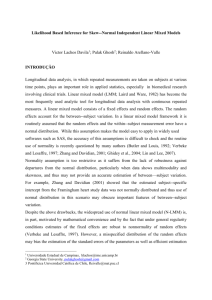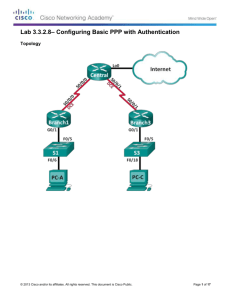Dear
advertisement
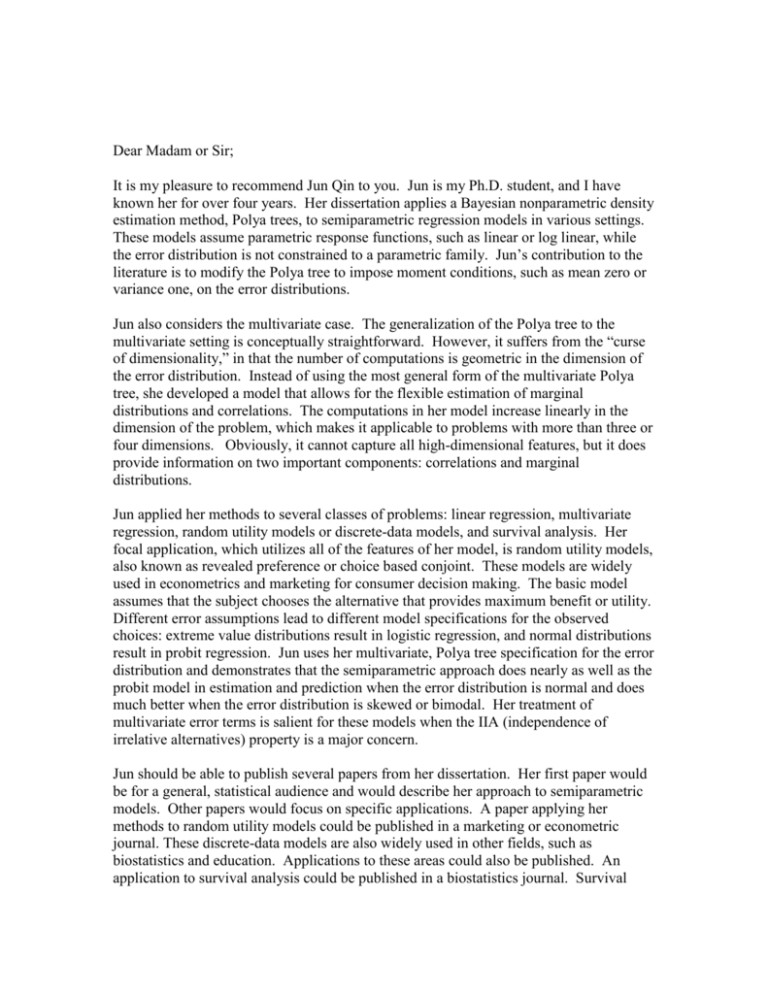
Dear Madam or Sir; It is my pleasure to recommend Jun Qin to you. Jun is my Ph.D. student, and I have known her for over four years. Her dissertation applies a Bayesian nonparametric density estimation method, Polya trees, to semiparametric regression models in various settings. These models assume parametric response functions, such as linear or log linear, while the error distribution is not constrained to a parametric family. Jun’s contribution to the literature is to modify the Polya tree to impose moment conditions, such as mean zero or variance one, on the error distributions. Jun also considers the multivariate case. The generalization of the Polya tree to the multivariate setting is conceptually straightforward. However, it suffers from the “curse of dimensionality,” in that the number of computations is geometric in the dimension of the error distribution. Instead of using the most general form of the multivariate Polya tree, she developed a model that allows for the flexible estimation of marginal distributions and correlations. The computations in her model increase linearly in the dimension of the problem, which makes it applicable to problems with more than three or four dimensions. Obviously, it cannot capture all high-dimensional features, but it does provide information on two important components: correlations and marginal distributions. Jun applied her methods to several classes of problems: linear regression, multivariate regression, random utility models or discrete-data models, and survival analysis. Her focal application, which utilizes all of the features of her model, is random utility models, also known as revealed preference or choice based conjoint. These models are widely used in econometrics and marketing for consumer decision making. The basic model assumes that the subject chooses the alternative that provides maximum benefit or utility. Different error assumptions lead to different model specifications for the observed choices: extreme value distributions result in logistic regression, and normal distributions result in probit regression. Jun uses her multivariate, Polya tree specification for the error distribution and demonstrates that the semiparametric approach does nearly as well as the probit model in estimation and prediction when the error distribution is normal and does much better when the error distribution is skewed or bimodal. Her treatment of multivariate error terms is salient for these models when the IIA (independence of irrelative alternatives) property is a major concern. Jun should be able to publish several papers from her dissertation. Her first paper would be for a general, statistical audience and would describe her approach to semiparametric models. Other papers would focus on specific applications. A paper applying her methods to random utility models could be published in a marketing or econometric journal. These discrete-data models are also widely used in other fields, such as biostatistics and education. Applications to these areas could also be published. An application to survival analysis could be published in a biostatistics journal. Survival analysis models also appear in marketing (e.g. how long does a customer remain a customer), finance (e.g. time to bankruptcy), and strategy (e.g. time to market entry). Jun is extremely bright and hard working. She was one of the top students in her classes, which included students from economics, statistics, biostatistics, and engineering. Her oral English skills are good, and her written English skills have improved considerably after taking a technical communication class. Jun taught an undergraduate statistics course for us and has taken advantage of various teaching workshops and recourses on campus. In addition to being very bright and hard working, Jun has an outgoing, cheerful personality. Overall, Jun is a very talented and engaging individual and would be a welcomed addition to any research oriented group. Please do not hesitate to call me for more information. Sincerely, Peter Lenk Associate Professor of Statistics and Marketing Phone: Email: 734-936-2619 plenk@umich.edu
